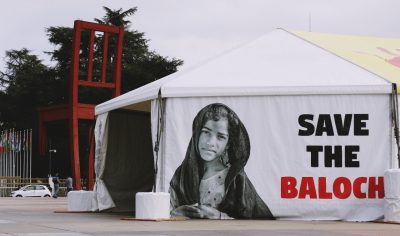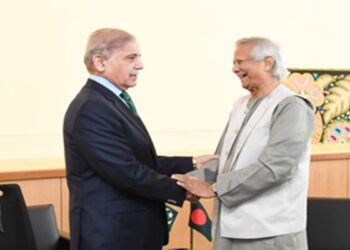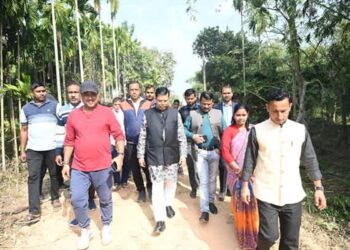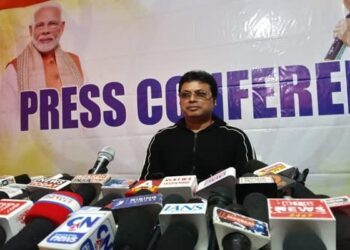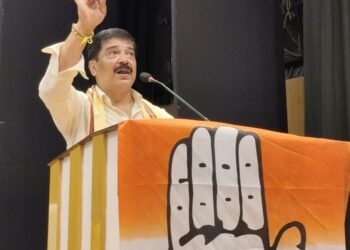Geneva, Sep 12: A powerful three-day exhibition organised by Global Human Rights Defence (GHRD) at Geneva’s iconic Place des Nations, beside the Broken Chair monument, has spotlighted the ongoing persecution of minorities in Pakistan and Bangladesh. Held from September 8–10, the event drew wide attention from international visitors, civil society actors, and the general public.
Through stark posters, data, and portraits of victims, the exhibition amplified the plight of Pakistan’s Ahmadiyya, Sindhi, and Baloch communities, as well as Bangladesh’s Hindu, Buddhist, and Christian minorities. These groups, often silenced or ignored, face systemic discrimination, violence, and denial of fundamental freedoms.
“Ahmadis in Pakistan are disenfranchised and targets of hate campaigns, while Baloch and Sindhi activists suffer enforced disappearances and extrajudicial killings,” GHRD said in a statement. “In Bangladesh, minorities endure intimidation, attacks on places of worship, and exclusion from social and political life. Across both countries, justice and protection remain out of reach, leaving them exposed to repeated abuses.”
The exhibition’s strong reception highlighted growing global concern. Visitors expressed solidarity and called for urgent international action to safeguard vulnerable groups.
GHRD urged the United Nations, human rights organisations, and policymakers to take concrete measures to protect minorities and hold perpetrators accountable.
Earlier, at the 60th Session of the Human Rights Council in Geneva, GHRD co-hosted a side event titled “Voices from the Margins: Protecting Minority Rights in South Asia”. Attended by representatives from at least 50 missions and civil society groups—including those from Greece, Denmark, China, India, and Bangladesh—the session underscored escalating religious persecution in Pakistan and the targeting of Hindus and indigenous communities in Bangladesh.
The initiatives reinforced the urgent call for stronger global engagement to address systemic discrimination and safeguard human rights in South Asia.


